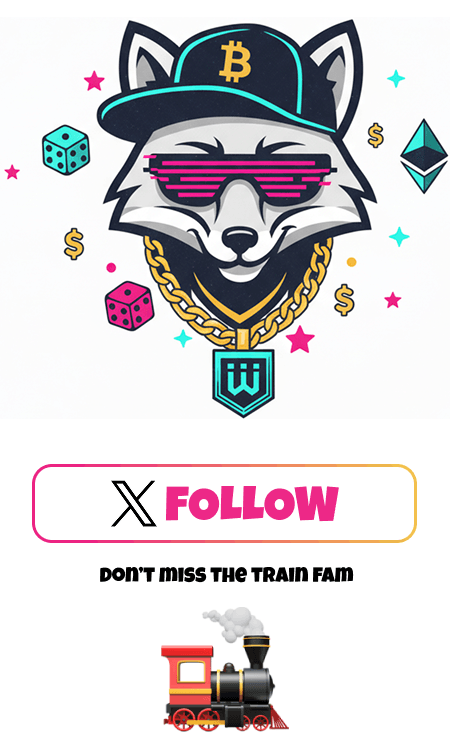In Web3 gambling, every bet needs a resolution. Did Arsenal actually win? Did BTC close above $70K? Did Trump take the White House?
In a traditional sportsbook, the casino just tells you the result. In a Web3 sportsbook or prediction market, there’s no central bookie. Instead, the truth comes from oracles — the bridges that feed real-world data into blockchain smart contracts.
Let’s break down what oracles are, why they’re essential in Web3 gambling, and how they power everything from sports betting to event markets.
What Is an Oracle in Web3?
An oracle is a service that brings off-chain data (real-world information) onto a blockchain. Smart contracts can’t just “check the internet.” They need a trusted middle layer to fetch and verify results.
In gambling, oracles supply answers like:
- Which team won the match?
- What was the closing price of Bitcoin on Friday?
- Did a certain politician win the election?
Without oracles, a Web3 sportsbook would have no way to decide who gets paid.
How Oracles Work in Gambling
- Event happens in real world → e.g., Barcelona beats Real Madrid 2–1.
- Oracle fetches result → pulls verified data from sports feeds, exchanges, or APIs.
- Smart contract receives update → contract knows “Barça = winner.”
- Bets settle automatically → payouts sent instantly to winners’ wallets.
The magic is: no operator decides. The oracle feeds data, and the contract enforces rules.
Real Oracle Providers in Web3 Gambling
- Chainlink → Biggest oracle network, powers price feeds and sports data. Many prediction markets integrate Chainlink VRF (randomness) and Chainlink Data Feeds.
- Pyth Network → High-speed price oracles used in DeFi and prediction markets (especially for crypto betting).
- UMA (Optimistic Oracles) → Used by some markets to resolve unusual events by crowdsourced verification.
- Band Protocol → Alternative to Chainlink, often integrated in Asia-focused platforms.
- Tellor → Decentralized reporters submit data, with incentives to be accurate.
Oracles in Sportsbooks
Sportsbooks need constant data: scores, schedules, odds, and final outcomes.
- Traditional sportsbooks → control this data internally.
- Web3 sportsbooks → outsource truth to oracles.
Example:
- Player bets 1 ETH on UFC fight.
- Oracle pulls result from ESPN/API.
- Smart contract pays winner instantly.
This avoids shady books delaying payouts or misreporting results.
Oracles in Prediction Markets
Prediction markets expand beyond sports to politics, crypto, culture, and more.
Examples:
- Polymarket → uses oracles to settle “YES/NO” questions like “Will ETH ETF launch by May 2025?”
- Augur → originally experimented with user-voted outcomes, but suffered from disputes.
- Kalshi (Web2/regulated) → shows how crucial reliable resolution is for regulators to approve markets.
The core problem: truth is messy. Elections get contested, prices vary across exchanges, news sources conflict. Oracles must standardize this into one clear result.
Why Oracles Matter for Fairness
If the oracle fails, the whole game collapses. Risks include:
- Oracle manipulation → Attackers trick feeds to report wrong scores.
- Data disputes → Different sources show slightly different results.
- Latency → Delayed data = delayed payouts.
- Censorship → Governments might pressure oracles to block certain markets.
This is why top platforms rely on decentralized oracle networks instead of single feeds.
Famous Oracle Moments in Gambling
- Chainlink VRF in lotteries → Proved draws were fair, not rigged.
- Polymarket disputes (2020 election) → Showed how important clear resolution rules are for oracles.
- Crypto price betting → In 2021, oracle glitches caused incorrect DeFi payouts worth millions, shaking trust in price feeds.
These stories highlight how fragile the system is without reliable oracle design.
Numbers That Show Oracle Power
- Chainlink secures over $15B in DeFi value daily, including gambling protocols.
- Polymarket processed over $100M in bets during the 2020 election, all oracle-settled.
- Sports data is a $250B global industry — now bleeding into Web3 via oracle-powered feeds.
Oracles aren’t just side tools — they’re the backbone of billions in bets.
Future of Oracles in Gambling
- Faster feeds → Near-instant sports and price data for live betting.
- Hybrid models → Mix of decentralized oracles + human arbitration for weird events.
- Cross-chain oracles → Feeding results to multiple blockchains at once.
- AI + oracles → AI could pre-verify and filter data before it hits contracts.
As sportsbooks and prediction markets scale, oracles will only get more critical — both for trust and for speed.
How to Bet Safely With Oracles
- Check the provider → If a platform uses Chainlink, Pyth, UMA, or Tellor, that’s a good sign.
- Read resolution rules → Make sure markets clearly state how results will be decided.
- Avoid black-box casinos → If they don’t disclose data sources, assume risk.
- Stick to volume platforms → Big sites like Polymarket, Rollbit, or BetFury have more to lose from oracle failures.
Final Word
Every Web3 bet needs truth. In sportsbooks and prediction markets, that truth comes from oracles.
They’re the invisible referees — pulling data, feeding it on-chain, and ensuring payouts are automatic and provably fair.
Without them, Web3 gambling would collapse into disputes and scams. With them, it becomes fast, transparent, and global.
So next time you bet on-chain — whether it’s a football match, a U.S. election, or Bitcoin’s price — remember: your winnings don’t just depend on the outcome, but also on the oracle that confirms it.
Wagmi 🚀


